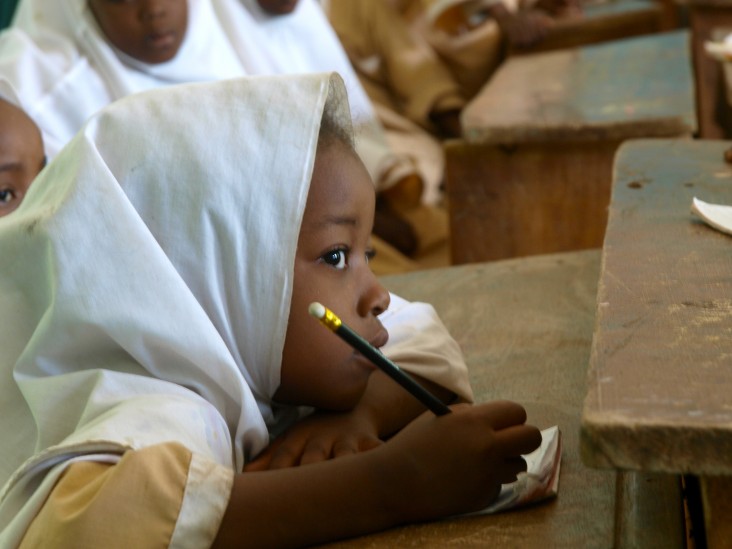Speeches Shim

USAID collaborates with the Government of Nigeria to strengthen education systems at the state and local government levels in select northern states.
The country's education system has not kept pace with its rapidly growing school-age population. The quality of basic education is extremely poor, leading to low demand and unacceptably low academic performance. Of the 30 million primary school-aged children in the country, it is estimated that up to 10 million are not enrolled in formally recognized schools. Of those students currently in primary school, less than one third will attend junior secondary school and even fewer will proceed to senior secondary school. While education indicators are poor nationwide, they are weakest in the northern states.
In this context, we work in two northern states (Bauchi and Sokoto) and will expand programming to:
- Strengthen effective education management systems, focusing on increased capacity to provide quality education services;
- Improve education quality, demonstrated by increased reading skills; and,
- Increase equitable access to safe, relevant and accredited educational options.
Basic Education
We employ a system-strengthening approach that supports the delivery of basic education services by addressing key issues in the management, sustainability and oversight of basic education. This includes support to the government for data collection and analysis for appropriate educational policy and decision making. A major achievement has been the adoption of a system that tracks and prioritizes funding for education that has led to an increase in the education budget for the two states. Initiatives also strengthen non- formal education systems to provide orphans and vulnerable children with reading, mathematics, life skills, and psycho-social counseling.
Support for the Northeast
In Northeast Nigeria, where access to educational opportunities due to the Boko Haram insurgency and the resulting displacement of families and communities have been disrupted, our activities provide continuity to education, improve the quality of teaching and learning, increase equitable access to education, stabilize institutional capacity to deliver education, and integrate peacebuilding and safety into school communities in Adamawa, Bauchi, Gombe and Yobe states. Multi-donor efforts help communities of teachers, parents, police, community leaders and young people to promote safe zones for education.


Comment
Make a general inquiry or suggest an improvement.